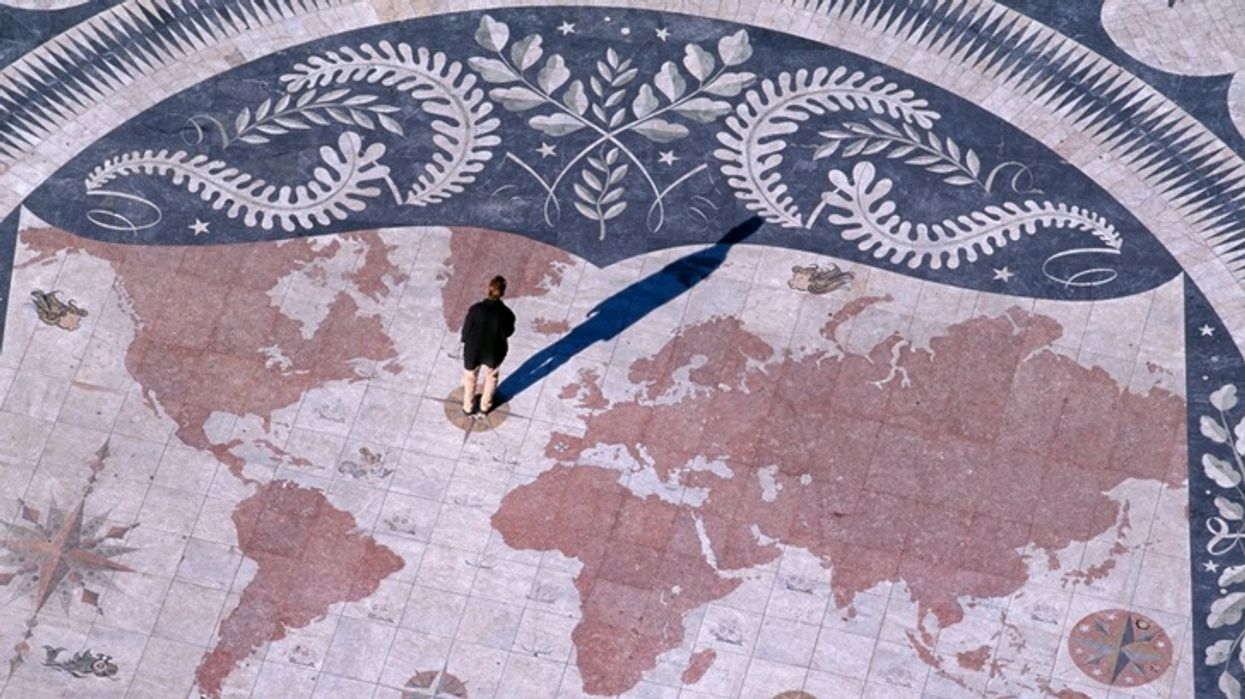The results from 2017's Corruption Perception Index are in, and the latest statistics show that there have been little to no progress made on countries ending corruption.
The index ranked 180 countries according to perceived levels of public sector corruption on a scale of 0 to 100, with 0 being the most corrupt and 100 representing countries that are actively trying to end corruption.
The final outcome is pretty grim.
A whopping two thirds of countries scored 50 or below, bringing the global average to 43 points.
This year, New Zealand and Denmark rank highest with scores of 89 and 88 respectively. Syria, South Sudan and Somalia rank lowest with scores of 14, 12 and 9 respectively. The best performing region is Western Europe with an average score of 66. The worst performing regions are Sub-Saharan Africa (average score 32) and Eastern Europe and Central Asia (average score 34).
Transparency International was formed in 1993 and has chapters in 100 countries. The organization strives to have a world exist without corruption and gives voice to victims by working with governments, businesses, and citizens to "stop abuse of power, bribery, and secret details."
Many journalists and activists in corrupt regions of the world put their lives at risk, and further analysis showed that countries with the least amount of protections for media and non-governmental organizations (NGO) scored the lowest.
At least one journalist is killed every week in countries with the lowest scores.
The test was conducted by incorporating data from the Committee to Protect Journalists, and the resulting analysis from the last six years revealed 9 out of 10 journalists were killed in countries that scored 45 or lower.
Patricia Moreira, the managing director for Transparency International said:
No activist or reporter should have to fear for their lives when speaking out against corruption. Given current crackdowns on both civil society and the media worldwide, we need to do more to protect those who speak up.
Based on their research in 100 countries, the organization considers journalists being essential for ending corruption, and Transparency International calls on the global community to help the cause with suggestions that include:
Governments and businesses must do more to encourage free speech, independent media, political dissent and an open and engaged civil society.
Governments should minimize regulations on media, including traditional and new media, and ensure that journalists can work without fear of repression or violence. In addition, international donors should consider press freedom relevant to development aid or access to international organizations.
Civil society and governments should promote laws that focus on access to information. This access helps enhance transparency and accountability while reducing opportunities for corruption. It is important, however, for governments to not only invest in an appropriate legal framework for such laws, but also commit to their implementation.
Delia Ferreira Rubio, the chair of Transparency International said that the results show not only the attacks on press freedom and "the reduction of space for civil society organisations" but the risk is "the very essence of democracy and freedom."















 @DuncanCecil/X
@DuncanCecil/X @@realDonaldTrump/Truth Social
@@realDonaldTrump/Truth Social @89toothdoc/X
@89toothdoc/X @xray_media/X
@xray_media/X @CHRISTI12512382/X
@CHRISTI12512382/X
 @sza/Instagram
@sza/Instagram @laylanelli/Instagram
@laylanelli/Instagram @itssharisma/Instagram
@itssharisma/Instagram @k8ydid99/Instagram
@k8ydid99/Instagram @8thhousepath/Instagram
@8thhousepath/Instagram @solflwers/Instagram
@solflwers/Instagram @msrosemarienyc/Instagram
@msrosemarienyc/Instagram @afropuff1/Instagram
@afropuff1/Instagram @jamelahjaye/Instagram
@jamelahjaye/Instagram @razmatazmazzz/Instagram
@razmatazmazzz/Instagram @sinead_catherine_/Instagram
@sinead_catherine_/Instagram @popscxii/Instagram
@popscxii/Instagram
